Full house for South Australia RHD Education Workshop
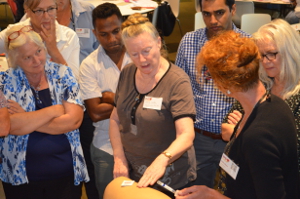 |
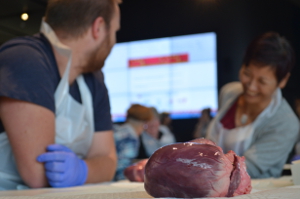 |
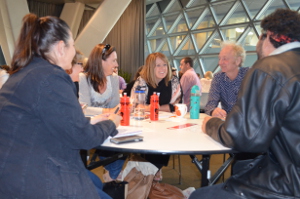 |
“I had a fantastic time; I wish it didn’t have to end!”
“Lots of great information; wish it would have gone on for a week.”
The South Australia RHD Education Workshop was held in Adelaide in March 2017, following similar workshops in Brisbane and Darwin in 2016. As part of our mission to prevent and reduce acute rheumatic fever (ARF) and rheumatic heart disease (RHD) in Australia, RHDAustralia provides health professionals with high quality, evidence-based educational resources and workshop opportunities.
The work of the South Australian RHD Control Program, in conjunction with the Aboriginal Health Council of South Australia and Nganampa Health Council, over the past few years has been integral in raising awareness of rheumatic heart disease in the State. South Australia is home to over 40,000 Aboriginal and Torres Strait Islander people with 48% of them living in urban areas, 33% in regional areas and 19% in remote communities[1]. With nearly 100% of new and recurrent cases of ARF occurring in Indigenous populations, it is important to ensure health professionals working in SA (and beyond) are aware of and know how to prevent, diagnose and properly manage cases of ARF and RHD.
“A wonderful variety of speakers and formats, which were accessible and inclusive.”
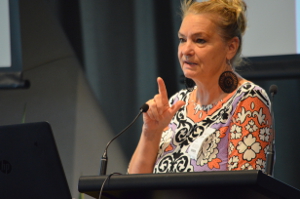 |
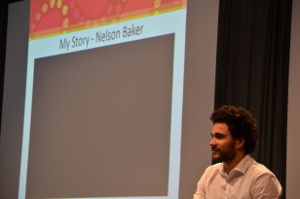 |
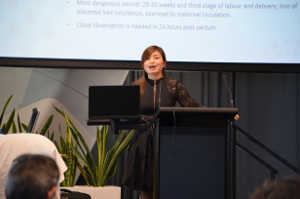 |
Over 80 health professionals, with various levels of experience and professional backgrounds, from junior and senior Aboriginal Health Workers, GPs, nurses and midwives, attended the SA RHD Education Workshop. Participants came from Adelaide metro areas and regional and remote South Australia, plus there were a number of interstate participants and one international participant (from East Timor). The SA RHD Control Program and the Country SA PHN provided travel scholarships to Aboriginal Medical Service and Aboriginal Community Controlled Health Organisation staff from remote areas.
The workshop enabled participants to listen and learn from experts in the field while also participating in more hands-on learning activities. Some of the more popular discussions included; What are the Social Determinants of Rheumatic Heart Disease; Lessons from the Lighthouse Project; and Medical Management of Rheumatic Heart Disease.
“It was great, thank you and I loved the workbook also!”
Clinical sessions included a guided anatomical dissection of (pig) hearts led by Maarten Engels from Bitronik, a live echocardiographic scan by Michael Cursaro, Chief Cardiac Physiologist at Royal Adelaide Hospital, and a practical session on intramuscular injection sites and methods for delivering benzathine penicillin G (BPG), led by a number of experienced nurses.
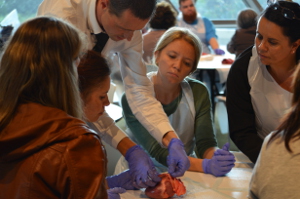 |
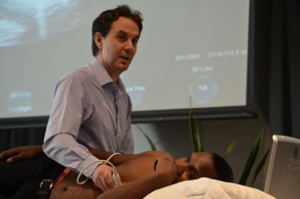 |
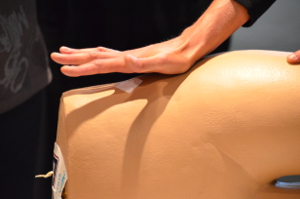 |
“I will highly recommend for other staff I work with to attend this workshop. It has been so informative and humbling. Excellent presentations by passionate people.”
The patient perspective is an essential component of RHDAustralia education workshops and patients and families living with RHD concluded the workshop talking about their personal experiences. This was, as always, a powerful reminder of the importance of early diagnosis, best practice management and culturally appropriate care.
“Great you added in patient/family stories, moving and effective”
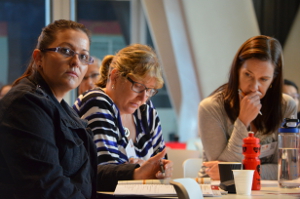 |
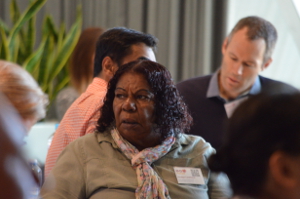 |
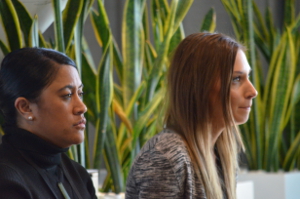 |
Thank you!
A special thank you to the patients and families who graciously shared their stories with us. We greatly appreciate your time, courage and candour.
And thank you to our sponsors at the Heart Foundation SA, Aboriginal Health Council of South Australia, South Australia Health and Medical Research Institute, Menzies School of Health Research, Country SA PHN, and SA Health.
Workshop presentations, photos and resources
Workshop presentations and resources presented at the workshop
1. Australian Institute of Health and Welfare. Healthy for Life - Aboriginal Community Controlled Health Services Report Card [Internet]. Canberra 2013 [cited 12 April 2017]. Available from: https://www.creativespirits.info/aboriginalculture/people/aboriginal-population-in-australia#ixzz4dpEysCw1
